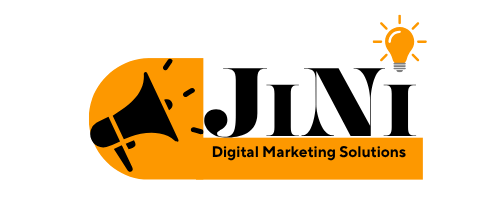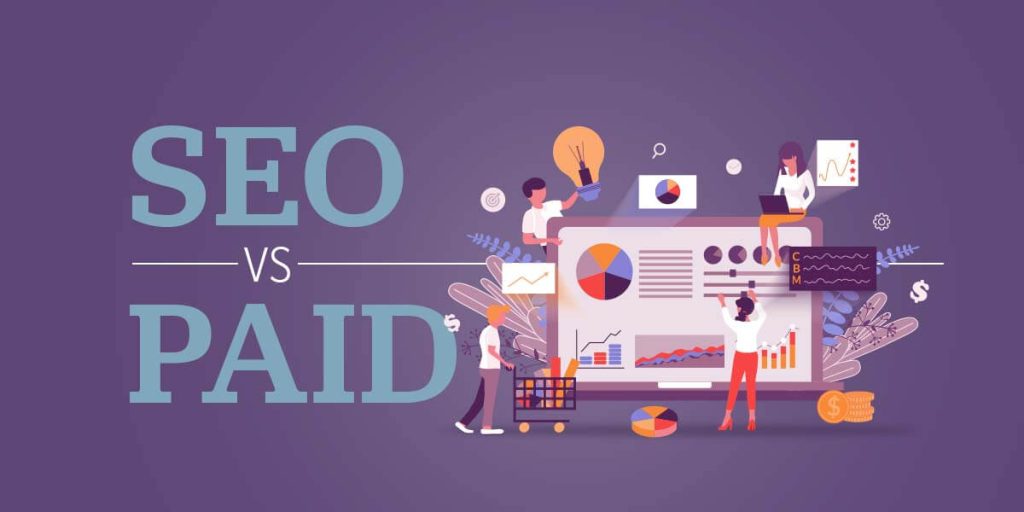Search Engine Optimization SEO vs Paid Ads: Which one is right for you ?
In the ever-evolving world of digital marketing, businesses often grapple with one question: should they invest in SEO (Search Engine Optimization) or Paid Ads (PPC)? The truth is, there’s no one-size-fits-all answer. Here’s a comprehensive guide to help you decide what’s best for you.
This is just the beginning – explore how we can help you grow your online presence
1. What Are SEO and Paid Ads ?
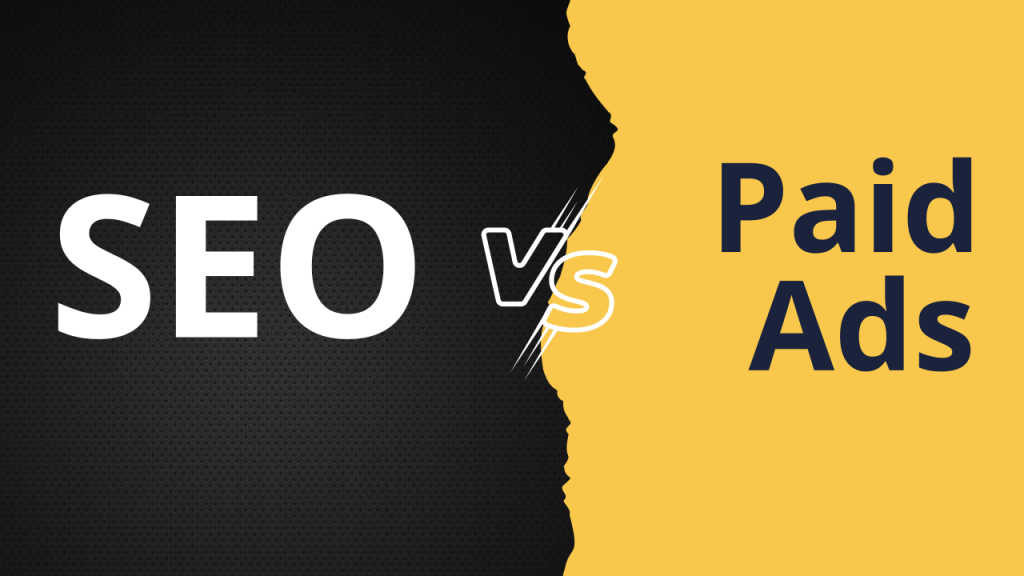
What Are SEO (Search Engine Optimization )
- Focuses on boosting organic rankings in search engine results.
- Involves creating quality content, on-page/f off-page optimization, backlinks, and technical fine-tuning.
- Attracts clicks without paying per impression — though indirect costs include content creation and link building.
Paid Ads (PPC: Pay-Per-Click)
- Involves bidding on keywords to show ads in search engine or social network results .
- Costs are incurred per click/impression; offers exact targeting control — demographics, time, and geography.
2. Speed, Cost, and Control
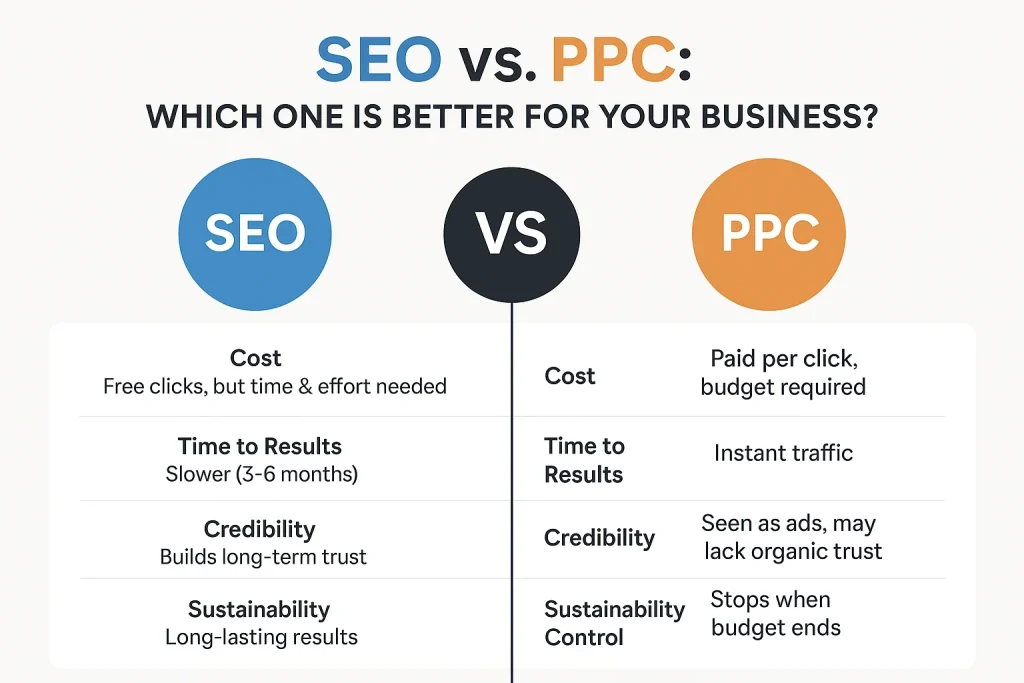
Speed
- PPC yields immediate visibility, ideal for fast promotions.
- SEO is a long-term play — results take months building organic authority.
Cost
- SEO requires upfront investment in tools, teamwork, content, but has minimal ongoing costs.
- PPC costs accumulate with each click, yet you pay only for potential customers.
Control
- PPC offers granular control over budgets, copy, targeting, and quick adaptability.
- SEO is more organic — success depends on search engine updates and ranking trends.
3. Performance & ROI
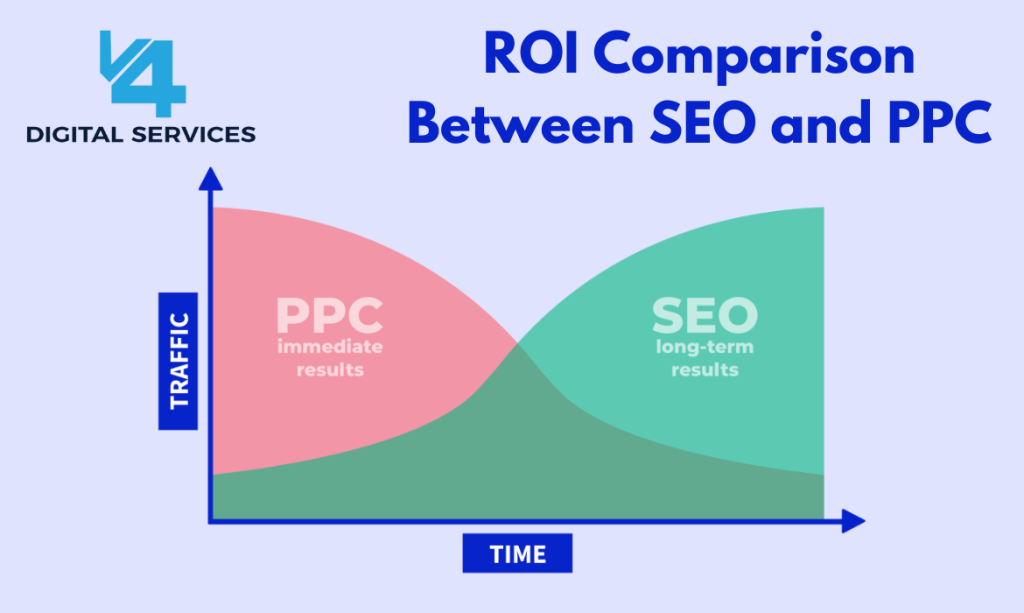
- SEO typically delivers higher long-term ROI — around 25% more than PPC in many industries.
- PPC delivers faster conversions — visitors from ads convert 35–50% more often than organic sessions.
- Cost-per-acquisition (CPA) for organic can be lower if executed well. However, smart PPC campaigns can yield $2 in revenue for every $1 spent.
4. Strengths & Weaknesses
SEO Advantages
- Builds sustained, free visibility.
- Enhances brand credibility — users trust organic listings more.
- Dominant among B2B marketers — over 61% cite SEO as their best lead channel.
SEO Disadvantages
- Slow to deliver — patience and consistent effort are required.
- Highly dependent on algorithm changes.
PPC advantages
- Provides instant traffic and positioning.
- Allows precise targeting and quick performance adjustments.
- Excels during product launches, promotions, and local campaigns.
PPC disadvantages
- Can be costly if not optimized.
- Results disappear when the budget runs dry.
- Requires constant management — bidding, creative testing, quality score monitoring.
5. Which One Should You Choose?
Your decision should align with:
- Business goals: immediate sales vs long-term brand building.
- Timeline: do you need results today or later?
- Budget: can you invest upfront or sustain ongoing bids?
- Competitive landscape: is your industry overcrowded with PPC activity?
Decision Guide
Quick sales, product launch, or busy season |
Building lasting brand presence and authority |
Competitive industries with expensive keywords |
Limited budget, content-savvy team |
High-margin, time-sensitive offers |
PPC |
SEO |
SEO + PPC |
SEO |
PPC |
Instant visibility and control |
Cost-effective over time |
Balanced approach |
Lower long-term costs |
ROI gains outweigh costs |
6.The Power of Combining Both
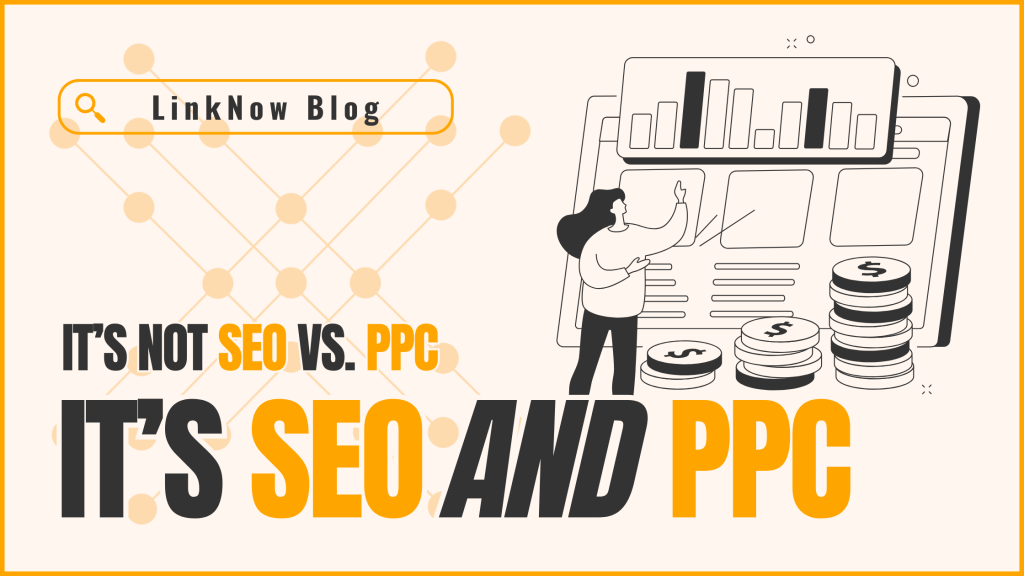
You don’t need to choose one. Combining SEO and PPC provides the best results:
- Use PPC to test keywords — boost the ones that perform organically.
- Dominate SERP real estate — showing up in both paid and organic enhances credibility.
- Share data between channels — search queries, ad performance, and user behavior inform each other.
- Allocate budget efficiently — lean on PPC during SEO ramp-up; pivot as organic traffic grows.
7.How to Build a Hybrid Strategy
- Set clear goals — define target KPIs for traffic, conversions, brand awareness.
- Research extensively — identify keyword priorities: awareness, consideration, conversion.
- Kick off PPC — quick-launch ads, analyze what works.
- Scale SEO efforts — optimize site structure, content, and build authority.
- Monitor & adjust — use analytics to refine both campaigns.
Final Take
There’s no winner in the “SEO vs Paid Ads” battle — it’s about what fits your current needs.
- Want quick wins? Go PPC.
- Want long-term stability? Go SEO.
- Want both? Build a blended strategy.
By understanding your goals, budget, and market, you can craft the perfect mix — not choice paralysis, but choice empowerment.
Ready to take the next step? Get started with us today
